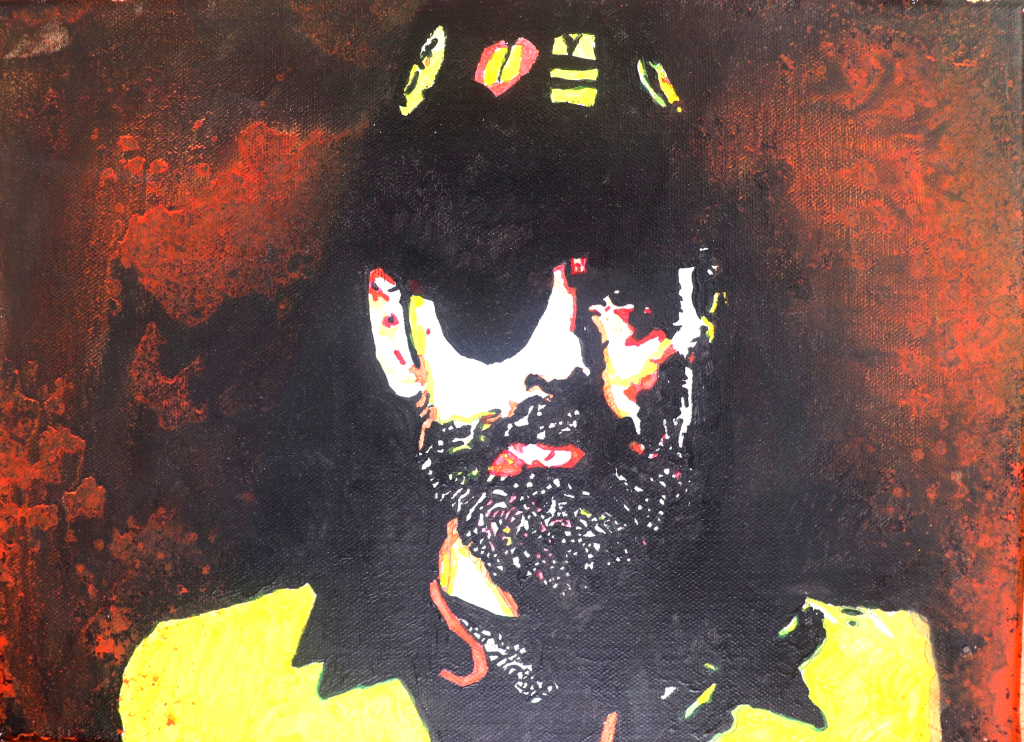
Quentin Hubert is a self-taught French painter from a family of artists spanning five generations. Since 2009, he has developed a unique artistic approach, combining various styles and techniques to explore key themes in the history of art. Inspired by artists such as Jean Le Gac and Pierre Soulages, he also draws from his familial heritage, deeply rooted in painting and critical thinking.
In his exhibition Love, Truth, Historical Dialectics, and Revolution, Hubert engages in a reflection on social struggles, capitalist exploitation, and collective emancipation. Through his paintings and texts, he questions the commodification of human existence, exposes the fetishism of commodities, and shows how love—both human and collective—can become a driving force for social revolution. He critiques the reduction of human relations to mere exchanges of value, dehumanizing individuals for the benefit of capital.
This exhibition follows the tradition of maximalist groups and the Marx-Engels collective, highlighting the dialectical relationship between capitalism and communism, with the goal of overcoming the limits imposed by the state and commodity relations. It calls for the reappropriation of human relations and a vision of a future free from capitalist alienation.
Through this reflection on collective emancipation and social transformation, Hubert also tackles a fundamental question: that of the body, identity, and inscription in history. The generic body, in this context, becomes an essential vector of this transformation.
What is the generic body? It represents the extent of our existence. My “being” is the movement through which my generic body inscribes itself in the history of the world. This inscription reveals emotional, sensual, and historical spaces that escape me, provoking existential anxiety.
Revolution, in its etymological sense of “revolutio”, signifies a return to the origin, to an emancipated substance. Loving oneself should not be limited to a consumerist narcissism; it is a revolutionary act that lies between the false and the true, creating an authentic erotic relationship. To love the other is to engage in a dialogue with universal history to eradicate all forms of alienation.
Love, truth, history, and revolution are the true substances of this generic movement. This dialogue goes beyond the individual; it unfolds in a universal dynamic, where every relationship becomes a reflection of a shared history, shaped by human struggles and aspirations through time. There is no isolated singularity, but an identity that flourishes within the context of a collective narrative.
Exhibition Opening
Kulterra Gallery, str. Știrbei Vodă 104 – 106, sector 1, Bucharest.